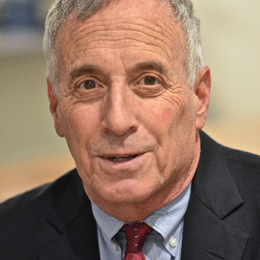How Social Security Misleads About Claiming Benefits
A new government report and Senate hearing take the agency to task
For years, I've been railing against Social Security's crazy complexity — 2,728 rules in the Social Security Administration’s (SSA) handbook and hundreds of thousands of rules about those rules in its Program Operating Manual System. On top of that, agency has some 40,000 undertrained, overwhelmed, and sometimes arrogant staffers who routinely tell people things that are dead wrong, half wrong, misleading, or incomplete. As a result, thousands of people are making terribly wrong decisions daily claiming Social Security retirement benefits — decisions that are costing them huge sums.

Don’t believe me? Then just take a look at the recent U.S. Government Accountability Office (GAO) report, Improvements to Claims Process Could Help People Make Better Informed Decisions About Retirement Benefits. The Senate Special Committee on Aging, which asked for the report, gets the problem. In fact, the committee just held a piercing hearing taking Social Security to task for misleading information the agency provides in its offices and online.
What Social Security Staffers Didn't Say
The GAO said it “observed 30 in-person claims at SSA field offices and found that claimants were not consistently provided key information that people may need to make well-informed decisions.” For example, in eight of 26 claims interviews where the person claiming could’ve received higher monthly benefits by waiting until a later age, the claims specialist didn’t discuss the pros and cons of delaying claiming.
And even though Social Security staffers, by law, haven’t been allowed to tell people their “break-even” point (at what age a decision to delay claiming benefits would start paying off, based on life expectancy) since 2008, the GAO found that some staffers are still doing this.
The Social Security website wasn’t much better, the GAO said. “Similar to in-person interviews, the online application process does not inform claimants that benefits are based on the highest 35 years of earnings or that life expectancy is an important consideration in deciding when to claim,” the report noted.
Confusion Over Claiming Social Security Benefits
Overall, the GAO found, many people don’t fully understand key details of Social Security’s rules that can affect their retirement benefits. Yet, said committee co-chair Senator Susan Collins (R-Maine) at the hearing, “deciding at what age to begin claiming Social Security retirement benefits is the single most important financial decision that many Americans will ever make.” For many, she added, “a Social Security check that is at the maximum level for which the senior is eligible could make the difference between a secure retirement and living in poverty.”
Now it’s true that, by law, Social Security staffers are not allowed to offer advice on how or when to claim benefits. But they are required to provide accurate information so potential beneficiaries can make informed, intelligent claiming decisions.
Social Security’s operations manual says claims specialists should explain the advantages and disadvantages of filing an application so the person can make an informed filing decision. The GAO said, however, that “the problems we observed during the claims interviews occurred in part because the questions included in the claims process did not specifically cover some key information.”
Computers Vs. Humans
While the GAO is getting at some of the issues in Social Security's mismanagement of its unmanageable system, it’s missing the bigger picture. No one but a computer can really tell which of the typically tens of tens of thousands of filing options that many, if not most, households face would generate the highest lifetime benefits.
Because Social Security staffers don't have such software at their disposal, their general advice will often be specifically wrong. For example, they might tell a widow to wait until 66 to take her highest widow's benefit even through it peaks years earlier because her former husband took his Social Security retirement benefits early. No Social Security staffer, indeed no human being on earth, can figure what's best in many everyday cases. What’s more, the staff hasn't received the least bit of training from economists on how to properly value the benefits Social Security provides.
If we are going to maintain our existing Social Security system, we should automate all interactions with Social Security so no human being on the Social Security staff is needed to run the system. People should simply be able to do all their business online, but they should do so knowing that they have figured out, in advance, exactly what to file for and when in order to maximize their lifetime benefits.
The first thing an economist would tell Social Security is to eliminate all references to life expectancy. None of us will die on time — at exactly the age we are likely, on average, to die. Instead, all of us need to worry about the worst-case scenario, from a financial perspective, namely living to our maximum age of life. So Social Security should never be referencing life expectancy and only be referencing maximum age of life.
If we are going to maintain our existing Social Security system, we should automate all interactions with Social Security so no human being on the Social Security staff is needed to run the system. People should simply be able to do all their business online, but they should do so knowing that they have figured out, in advance, exactly what to file for and when in order to maximize their lifetime benefits.
There are low-cost, commercial software programs to figure out what to tell Social Security about which benefits you want to take and when. (Full disclosure, my company provides one.) And there are lots of books available to learn the rules (including the bestseller I co-authored, Get What’s Yours.)
What Social Security Is Doing
At the hearing, Virginia Reno, deputy commissioner for retirement and disability policy at the Social Security Administration, said her agency is working with the White House Social and Behavioral Sciences Team “to use insights from the behavioral sciences to improve how we explain options that individuals have” about claiming options. And, she said, the agency is partnering with AARP to “explore messaging about claiming ages.” Further, she added, the Social Security Administration “supports a nationally-representative panel survey that allows us to determine what participants know about Social Security, how they want to receive information from us and how well they understand particular messages or terminology about retirement claiming.”
My view: The more Social Security can let us say online what we want to take and when, the less chance people will have interacting with Social Security staff and, as a result, getting and acting on bad advice. The fact that Reno is teaming up with AARP is, in itself, very troubling. AARP is all about selling products to the elderly. It's not, in my very well informed opinion, focused on helping the elderly make good financial decisions. As an example, AARP provides an extremely misleading and truly financially dangerous Social Security advice tool on its website.


